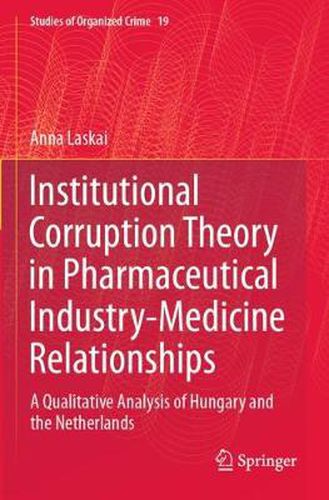Readings Newsletter
Become a Readings Member to make your shopping experience even easier.
Sign in or sign up for free!
You’re not far away from qualifying for FREE standard shipping within Australia
You’ve qualified for FREE standard shipping within Australia
The cart is loading…






This title is printed to order. This book may have been self-published. If so, we cannot guarantee the quality of the content. In the main most books will have gone through the editing process however some may not. We therefore suggest that you be aware of this before ordering this book. If in doubt check either the author or publisher’s details as we are unable to accept any returns unless they are faulty. Please contact us if you have any questions.
This book discusses the influence of the pharmaceutical industry on the practice of medicine, and the observed and potential pitfalls of such partnerships. It argues that the pharmaceutical industry has become indispensable to many of the activities of the medical profession across the pharmaceutical product lifecycle, and examines the regulatory, ethical, professional and institutional difficulties that arise from these interactions.
With data drawn from over 80 qualitative accounts from medical, pharmaceutical, regulatory and healthcare professionals, this book uses both Hungary and the Netherlands as case studies to demonstrate the potential problem of undue pharmaceutical industry influence within the relationships fostered with the profession of medicine. Chapters systematically describe the lifecycle of a pharmaceutical product from research to distribution, demonstrating the interdependency of industry and medicine. Arguing that the medical profession should be a buffer between the pharmaceutical industry interests and patient interests, the book explores how undue industry influence weakens the ability of the medical profession to do so. Using the theory of institutional corruption, the book aims to analyze how conflict of interest and the weakening of institutional imperatives is a result of institutional interactions rather than individual actions.
Appropriate for students and researchers of the pharmaceutical industry, corporate corruption, and those working in NGOs and policy making, this unique volume is an comprehensive look at the complex relationship between medicine and pharmacy.
$9.00 standard shipping within Australia
FREE standard shipping within Australia for orders over $100.00
Express & International shipping calculated at checkout
This title is printed to order. This book may have been self-published. If so, we cannot guarantee the quality of the content. In the main most books will have gone through the editing process however some may not. We therefore suggest that you be aware of this before ordering this book. If in doubt check either the author or publisher’s details as we are unable to accept any returns unless they are faulty. Please contact us if you have any questions.
This book discusses the influence of the pharmaceutical industry on the practice of medicine, and the observed and potential pitfalls of such partnerships. It argues that the pharmaceutical industry has become indispensable to many of the activities of the medical profession across the pharmaceutical product lifecycle, and examines the regulatory, ethical, professional and institutional difficulties that arise from these interactions.
With data drawn from over 80 qualitative accounts from medical, pharmaceutical, regulatory and healthcare professionals, this book uses both Hungary and the Netherlands as case studies to demonstrate the potential problem of undue pharmaceutical industry influence within the relationships fostered with the profession of medicine. Chapters systematically describe the lifecycle of a pharmaceutical product from research to distribution, demonstrating the interdependency of industry and medicine. Arguing that the medical profession should be a buffer between the pharmaceutical industry interests and patient interests, the book explores how undue industry influence weakens the ability of the medical profession to do so. Using the theory of institutional corruption, the book aims to analyze how conflict of interest and the weakening of institutional imperatives is a result of institutional interactions rather than individual actions.
Appropriate for students and researchers of the pharmaceutical industry, corporate corruption, and those working in NGOs and policy making, this unique volume is an comprehensive look at the complex relationship between medicine and pharmacy.